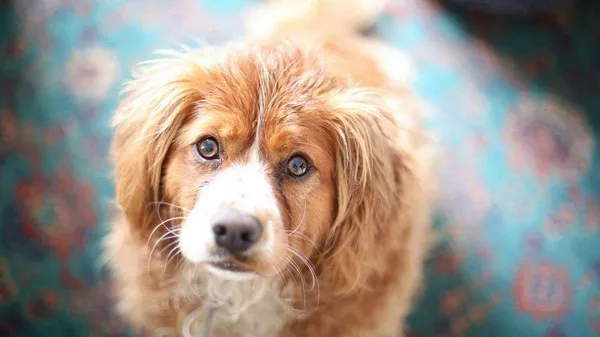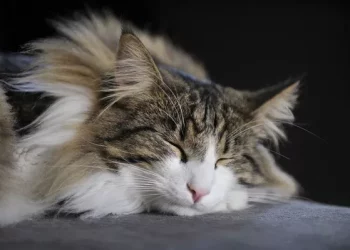Miniature Schnauzers are a breed known for their distinctive appearance, energetic personalities, and endearing traits. One of the most frequently asked questions by potential owners and enthusiasts alike is whether Miniature Schnauzers are loyal companions. In this comprehensive article, we will explore the characteristics of loyalty in dogs, the unique traits of the Miniature Schnauzer, and how various factors influence their loyalty.
Understanding Dog Loyalty
Defining Loyalty in Dogs
Loyalty in dogs can be described as a strong bond between a dog and its owner. This bond is characterized by:
Attachment: A loyal dog forms a deep emotional connection with its owner.
Protection: Loyal dogs often exhibit protective behaviors, standing guard over their owners and their homes.
Reliability: A loyal dog tends to respond positively to commands and cues from their owner, showing eagerness to please.
The Role of Breed in Loyalty
Different dog breeds exhibit varying levels of loyalty, influenced by their historical roles and characteristics. Breeds developed for companionship, protection, or herding often display strong loyalty traits.
Factors Influencing Loyalty
While breed tendencies are significant, individual factors also play a crucial role in loyalty:
Early Socialization: Exposure to different environments, people, and other animals during puppyhood helps shape a dog’s loyalty and trust.
Training and Bonding: Consistent training and positive interactions strengthen the bond between dog and owner.
Owner Behavior: An owner’s behavior, including affection, consistency, and discipline, influences a dog’s sense of security and loyalty.
The Miniature Schnauzer: An Overview
Breed History
The Miniature Schnauzer originated in Germany in the late 19th century. Bred primarily as a farm dog, they were valued for their ability to catch vermin. The breed was created by crossing the Standard Schnauzer with smaller breeds, such as the Affenpinscher and the Poodle. This history has contributed to their alertness, intelligence, and affectionate nature.
Physical Characteristics
Miniature Schnauzers are easily recognizable due to their unique appearance:
Size: They typically weigh between 11 to 20 pounds and stand about 12 to 14 inches tall.
Coat: Their double coat consists of a wiry outer layer and a soft undercoat, which requires regular grooming.
Facial Features: They have prominent eyebrows, a bushy beard, and a distinctive whiskered muzzle.
Temperament
Miniature Schnauzers are known for their friendly, spirited, and playful temperament. They are:
Intelligent: Highly trainable and quick learners, they thrive on mental stimulation.
Affectionate: They often form close bonds with their families and enjoy being involved in daily activities.
Alert: Their protective nature makes them excellent watchdogs, always ready to bark at any perceived threat.
Loyalty in Miniature Schnauzers
Bonding with Owners
Miniature Schnauzers are known for their loyalty and attachment to their families. They tend to form strong emotional bonds with their owners, often seeking companionship and affection. This loyalty can manifest in various ways:
Following Owners: Many Schnauzers will follow their owners around the house, wanting to be part of everything.
Seeking Attention: They often seek physical closeness, such as cuddling or sitting on laps.
Protective Instincts
Schnauzers are known for their protective nature, often alerting their owners to strangers or unusual sounds. This behavior is a sign of loyalty, as they see themselves as guardians of their home and family. Their instinct to protect can lead to:
Barking: A Schnauzer may bark to warn of potential intruders, showcasing their alertness and protective loyalty.
Body Language: They may position themselves between their owner and perceived threats, demonstrating their desire to protect.
Response to Training
Loyalty is often reflected in a dog’s willingness to obey commands and engage in training. Miniature Schnauzers are intelligent and eager to please, making them relatively easy to train. Their loyalty can be observed through:
Consistency: A well-trained Schnauzer responds reliably to commands, reinforcing the bond of trust with their owner.
Positive Reinforcement: They thrive on praise and rewards, making training an excellent way to strengthen loyalty.
Factors Influencing Loyalty in Miniature Schnauzers
Socialization
Early socialization is critical in shaping a Schnauzer’s loyalty. Exposing them to different people, environments, and other animals helps them develop confidence and a secure attachment to their owners. Key points include:
Puppy Classes: Enrolling in puppy classes can aid in proper socialization.
Positive Experiences: Ensuring positive experiences during socialization fosters trust and loyalty.
Training Methods
The methods used during training significantly impact a Schnauzer’s loyalty. Positive reinforcement techniques encourage a strong bond between dog and owner, while harsh training methods can lead to fear or anxiety. Important considerations include:
Consistency: Regular training sessions promote reliability and understanding.
Positive Environment: Creating a supportive training environment fosters trust and loyalty.
Owner Interaction
The way an owner interacts with their Miniature Schnauzer directly influences the dog’s loyalty. Factors to consider include:
Affection: Providing regular affection and attention strengthens the bond.
Routine: Establishing a routine helps Schnauzers feel secure and valued.
The Role of Environment
Home Environment
A stable and loving home environment enhances a Miniature Schnauzer’s sense of security, which in turn fosters loyalty. Key aspects include:
Safe Space: Providing a designated area for relaxation can help reduce stress.
Consistency: Maintaining a consistent routine contributes to a sense of security.
Lifestyle Factors
The owner’s lifestyle can also impact the dog’s loyalty. Schnauzers thrive in active households that provide regular interaction and exercise. Considerations include:
Activity Level: Schnauzers require daily exercise and mental stimulation, which helps prevent boredom-related behaviors.
Family Interaction: Engaging family members in activities with the Schnauzer enhances their sense of belonging and loyalty.
The Impact of Breed Characteristics
Territorial Behavior
As a breed, Miniature Schnauzers are known for their territorial instincts. This behavior can influence their loyalty, as they often feel a strong responsibility to guard their home and family.
Affectionate Nature
Miniature Schnauzers are naturally affectionate and enjoy being involved in family activities. This inherent desire for companionship contributes to their loyal nature.
See Also: Why Schnauzers Are the Best Dogs?
Intelligence and Trainability
Their intelligence and eagerness to learn make Miniature Schnauzers highly trainable, allowing them to form strong bonds with their owners through positive reinforcement and consistent training.
Potential Challenges to Loyalty
Separation Anxiety
Miniature Schnauzers can be prone to separation anxiety, which may affect their loyalty. Signs of separation anxiety include:
Barking: Excessive barking when left alone.
Destructive Behavior: Chewing or digging when the owner is away.
Lack of Socialization
Poor socialization can hinder a Schnauzer’s ability to form bonds, potentially affecting their loyalty. Ensuring early and consistent socialization is essential for developing a confident, loyal companion.
Negative Training Experiences
Harsh training methods can lead to fear and mistrust, undermining the loyalty of a Miniature Schnauzer. Positive reinforcement and nurturing training environments are crucial for maintaining their loyalty.
Building and Maintaining Loyalty
Creating Positive Experiences
Fostering loyalty involves creating positive experiences through socialization, training, and daily interactions. Key strategies include:
Engaging Activities: Participate in activities that both you and your Schnauzer enjoy, reinforcing your bond.
Regular Outings: Take your Schnauzer on walks, trips to the park, or dog-friendly events to create shared experiences.
Consistent Training
Regular training sessions not only teach commands but also strengthen the bond between owner and dog. Incorporate the following:
Short Sessions: Keep training sessions short and enjoyable to maintain engagement.
Reinforce Good Behavior: Consistently reward good behavior to encourage loyalty and trust.
Providing Stability
Providing a stable and loving home environment is crucial for maintaining a Schnauzer’s loyalty. Consider:
Routine: Establishing a daily routine provides a sense of security.
Safe Space: Designate a comfortable area where your Schnauzer can retreat when needed.
Conclusion
Miniature Schnauzers are indeed loyal companions, characterized by their affectionate nature, protective instincts, and eagerness to bond with their families. Their loyalty is influenced by various factors, including socialization, training methods, owner interaction, and the home environment.
By fostering positive experiences, providing consistent training, and maintaining a loving atmosphere, owners can cultivate and enhance the loyalty of their Miniature Schnauzers. Understanding the unique traits and needs of this breed will lead to a rewarding relationship filled with companionship and devotion. With the right approach, a Miniature Schnauzer can become not only a loyal friend but also a beloved family member for years to come.
Related Topics:


























